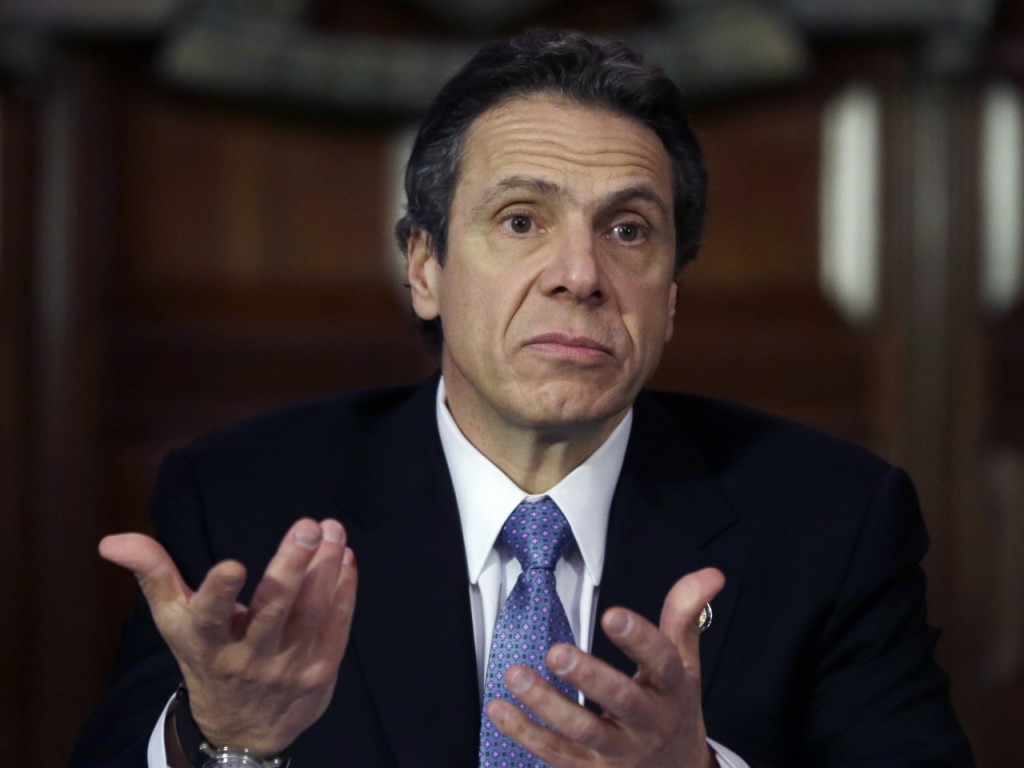There’s a great article in Vox magazine about Andrew Cuomo — Governor 1 Percent — the Governor of New York who is seen in many circles as the future of the Democratic Party. What this article does well (I think) is show the strategy of the self-proclaimed moderate Democrats — visibly fight for socially liberal causes and values, but spend your legislative time and energies catering to the priorities of the 1%. This glances by the question of whether these Democratic politicians who are proudly Blue for marriage equality, but looking to provide tax cuts and special subsidies to the 1% are actually becoming the face of what passes as progressive in this country.
Many New York progressives think that Cuomo has made a bet on what Democrats truly care about — that if he gives activists what they want on social issues, he can get away with giving the wealthy what they want on economic issues. Worse, they fear the combination might be politically irresistible to the Democratic Party: as the rich get richer and the Supreme Court systematically dismantles limits on money in politics, what if a Democrat who pleases the wealthy becomes the only kind of Democrat who can win an election?
This sounds like at least one of our local Senators, right? Someone who gets alot of credit for supporting marriage equality and filming “It Gets Better” videos, but who can’t be found on economic justice issues. Even one as basic as Social Security. Take a look at who is on the Judiciary Committee reviewing the Comcast/Time-Warner merger. This merger is 1% business if I ever saw it, and this won’t be especially beneficial to customers. And not only is Senator Coons a recipient of money from Comcast and Time Warner, so is the man with all of the progressive cred — Bernie Sanders. Shame on Bernie Sanders here, but at least he does have a track record of trying to push on the income inequality problem — and he certainly is at the tip of the spear for fixing Social Security that doesn’t shortchange the people who will need it.
Cuomo, whose office didn’t respond to requests for comment, has leveraged the rise of the rich perhaps better than any other Democrat — and maybe even any politician — in the country. He hasn’t just catered to them on economic issues, he’s mobilized them in favor of liberal social causes, using their support to get things done. And so far, his strategy is working. “If he’s successful — if in a state like New York one can be an acknowledged champion of progressive politics with those kinds of economic policies — there’s no reason that argument can’t be made nationally,” Brodsky warns. “You’d get a re-definition of progressive politics that takes the economic component out of it for the first time ever.”
So this is the Money Question (sorry) for me. We have a very great many Democrats who are hell bent on making sure that middle class, working class and poor people are hurt just because these Democrats see the 1% as their constituency. One of the people interviewed for this Vox article notes that it takes time for issues like income inequality to bubble up from the grassroots. That’s probably right, except that this is a problem that is more than 30 years in the making. And the problem is accelerating, with no sign that the Government (at any level) is going to pay attention to the fact that economic life gets harder for the many every single day they are helping the wealthy and corporations take more from us. Since the Occupy movement, you could hear some of the concerns of the rest of us start to get some discussion, but not much action. It seemed as though there was a slow dawning that the people who are persistently burdened by they way that the weight of government has been pushed to focus on the issues of the 1% might make good electoral politics, but I’m not sure that Democrats are ready to really warp their energies around the concerns of the majority of us. Certainly that is true for our Congressional delegation, right? But how do you get the attention of politicians when they don’t seem to have any incentives to deal with the problems of the rest of us?
